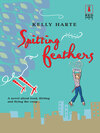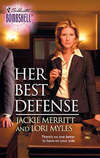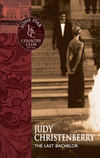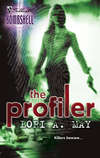Loe raamatut: «Spitting Feathers»
KELLY HARTE
was born in Northern Ireland but grew up in England. She has brought up two children, been married twice and now lives in Yorkshire with her extremely verbal Oriental cat. She has an M.A. in creative writing, has written stories for the BBC and is currently writing a TV series and her next book.

Spitting Feathers
Kelly Harte

MILLS & BOON
Before you start reading, why not sign up?
Thank you for downloading this Mills & Boon book. If you want to hear about exclusive discounts, special offers and competitions, sign up to our email newsletter today!
Or simply visit
Mills & Boon emails are completely free to receive and you can unsubscribe at any time via the link in any email we send you.
ACKNOWLEDGEMENTS
A big THANK-YOU to all those people
who matter to me; you know who you are….
To Joanna, Christian and Martin Harris
Contents
Chapter 1
Chapter 2
Chapter 3
Chapter 4
Chapter 5
Chapter 6
Chapter 7
Chapter 8
Chapter 9
Chapter 10
Chapter 11
Chapter 12
Chapter 13
Chapter 14
Chapter 15
Chapter 16
Chapter 17
Chapter 18
Chapter 19
Chapter 20
Chapter 21
Chapter 22
Chapter 23
Chapter 24
1
It could be said that I owe everything that’s happened to me in recent months to a mouldering, putrefied watermelon. I was coming to the end of my photographic course when my mother bought two for the price of one at her local market, and because she couldn’t fit both into her fridge she hauled the spare one all the way across town and gave it to me. I’d never had one before, and didn’t much fancy it either. I prefer my food with a few more calories, so I placed it on my ugly bed-sit windowsill and there it stayed until it finally began to collapse in on itself.
It was obviously decomposing from the inside, and it was as I was lying on my bed, noting the still glossy greenness of its skin set against the grey, disused gasometer that had been the view from my window for the past year, that I got my brilliant idea.
I’d been racking my brains for inspiration that would sneak me the end-of-year exhibition prize. I hadn’t been a particularly good student, I am sorry to say. In fact, I’d only just managed to scrape a pass on the course, and my future did not look especially rosy. The best I could hope for was a job in a second-rate studio, taking photos of uncooperative kids and perhaps the odd wedding, if I was lucky. And the only thing that could rescue me now was to win that prize.
It was a very long shot, but one thing I had over the others on my course was a tip-off from a sympathetic tutor about the judge. I’d been told she was one of those arty types, with a penchant for bleak social realism and pretentious titles. And, with this in mind, I set to at once, carefully cutting an artistic slice out of the gourd to expose the festering red flesh inside. Then, with the aid of some carefully positioned lights, I contrasted it sharply against the dreary monochrome background. My masterstroke, though, was the title of the composition. I called it Urban Decay, and the judge loved it.
It got me the prize—a place on the books of a well-known photographic agency—and a whole new future in the Capital. And so there I was, two weeks later, crashing on the sofa at Sophie’s Shoreditch flat while I waited for the expected deluge of offers.
Partly because my prize-wining photo had been of something vaguely edible—before it went off, that was— I’d decided to register myself as a specialist in food photography. It seemed a sensible move to me, what with the many images of food that surround us daily, not to mention that fact that I like the particular subject so much. Another thing that hadn’t escaped me was the possibility of an opening for a Celebrity in that particular area. There are Celebrity everything else, after all—Celebrity chefs, interior designers, hairdressers, gardeners… There are even Celebrity photographers, of course, but none, so far, that I knew about, that specialised in food. None, anyway, famous enough to have their ‘sumptuous homes’ featured in Hello! magazine, and that’s what I mean by Celebrity.
Except that my plans weren’t going too well at that particular moment. To date, in fact, there hadn’t even been a trickle of offers, let alone a flood. Which was why I dived at my mobile phone when it let out its little frog croak that sunny late-September afternoon.
‘Tao Tandy,’ I said eagerly into the mouthpiece, ever hopeful it was the agency calling.
‘It’s me,’ Sophie said, and I tried not to show my disappointment. She’d been ringing me daily from her place of gainful employment to check on my progress—or, more accurately, lack of it. ‘I might have some good news for you,’ she added chirpily.
‘A job?’
‘Better than that.’
‘What could be better than a job?’
‘I sent an internal e-mail memo to all departments of the bank today,’ she pressed on regardless.
‘What kind of memo?’ I asked her with caution.
‘Asking if anyone knew of any affordable accommodation going, of course.’
Of course. Getting rid of me seemed to be her main priority at the moment, and to be honest I couldn’t blame her. She was getting a lot of grief from her snooty flatmates about me staying there in the flat. ‘And?’
‘I think we might have hit the jackpot.’
‘What’s the catch?’ I said.
‘Don’t be a cynic all your life, Tao. I reckon we could be really on to something here. A once-in-a-lifetime offer.’
Which sounded very fishy to me indeed. ‘Where?’ I asked, picturing some bed-sitter-land dive in a run-down part of the city, much like the one I’d left behind in Manchester.
‘Hampstead…’
Now even I, with my limited knowledge, had a good idea that Hampstead wasn’t a run-down part of the city. ‘I thought you said that it was affordable.’
‘But that’s the best bit,’ Sophie said with glee. ‘It’s free. Gratis. Buckshee.’
‘Free as in in exchange for my body?’
‘Free as in in exchange for looking after a pet while the owner’s away.’
‘So there is a catch.’
‘God, Tao. Listen to yourself! You get the chance to live in the most sought-after part of London, for nothing, and you’re still complaining.’
‘I’m not complaining if this is for real, but it just seems too good to be true. You can’t blame me for being a teeny bit sceptical.’
‘Well, it’s certainly not a foregone conclusion. You’ll have to go for an interview—see if the pet owner likes you, trusts you, whatever.’
‘How long is this person planning on being away?’
‘Two months, which would be brilliant. It would give you loads of time to get established before looking for somewhere more permanent to live.’
It would indeed be brilliant, but then something else occurred to me. ‘Who told you about this amazing opportunity anyway?’
‘Someone in Foreign Investments e-mailed me back and we had a chat during our lunch break.’
Foreign Investments… I couldn’t help feeling a tiny bit jealous of Sophie at that moment. We’d both started out at the bank together in Manchester, but it had always been clear that she was the smart one, and so when she was duly promoted to the bank’s head office in London I’d decided to go back to college and study photography. It was the push I had needed to get me out of a rut and into something that appeared from the outside a lot more glamorous and exciting.
‘Male or female?’ I wanted to know.
‘Male,’ she said, suspiciously coy. ‘A very nice male, as a matter of fact, and it’s his great-aunt who owns the house in Hampstead.’
‘Why doesn’t he look after her pet while she’s away?’
There was a slight hesitation. ‘He’s not very good with animals, apparently, and he has his own place to think of. He can’t just drop everything to help Auntie out.’
‘He doesn’t sound all that nice to me. Hates animals, and unhelpful to old ladies. What’s his name, anyway?’
‘Jerome Audesley, and if he moved in you wouldn’t be able to, so you should be grateful.’
‘But what makes you think this aunt of his will like me?’
‘I’m not saying she will. But she’s a bit eccentric, apparently, so you’ve got a better chance than most, I suppose.’
It wasn’t a particularly encouraging response, but I didn’t have anything to lose so I asked for the woman’s name and number. ‘And what sort of pet are we talking about?’ I said when I’d finished jotting it down.
Another slight pause. ‘It’s a parrot,’ she said. ‘And the old lady is extremely fond of him.’
I got the impression she was holding something back, but since I was beginning to like the idea of spending some time in a smart part of town I let it pass. ‘I’ll give her a ring straight away,’ I said.
Mrs Adrienne Audesley had at least three plums in her mouth, and possibly a citrus fruit as well. She sounded posher than the Queen on the phone, and as formidable as Margaret Thatcher. I thought it would be helpful to mention the name of her great-nephew, but it nearly blew my chances there and then.
‘Are you a friend of his?’ Mrs Audesley demanded to know.
‘No,’ I said quickly, guessing the lie of the land by her tone. ‘He just works with a friend of mine.’
There was a slightly suspicious pause, then: ‘Can you come over immediately?’
I could, but, having no idea how long it would take, I said I’d be there within the hour.
‘That will have to do, I suppose,’ she growled at me. ‘Only don’t be any longer or I might have gone out.’
She gave me the address and, worried I might not get there in time via public transport, I decided to take a taxi. I couldn’t believe it when the driver announced that we had arrived, on two different counts: one, because he proceeded to charge me the equivalent of a small ransom demand, and two, because the house that we were parked outside was frankly amazing.
I’d already taken a fancy to Hampstead, which looked more like a large village to me than a part of London—and a very nice one at that. The house itself was just off the main drag, a mellow-bricked Georgian end of terrace with three elegant storeys, plus basement, and a run of steps leading up to a shiny black-painted door. And as I grudgingly parted with my money to the driver, who could not be persuaded that I deserved a discount on account of the fact that I was out of work, I set to wondering which part of the house Mrs Audesley lived in. She hadn’t mentioned a flat number during our phone conversation, but I assumed that her name would be listed along with the other occupants at the main door.
On my way up the tiled steps, I glanced over the wrought-iron railing to the basement, which had its own separate entrance, and guessed that this was where the old lady lived with her parrot. By now I could already see that there was only one buzzer at the front door, which seemed to suggest that the upper part of the house had not been turned into flats after all. And, because I was sort of curious to see who my rich neighbours might be, I pressed it anyway.
The voice went so well with her appearance that I knew it was Mrs Audesley the moment she opened the door. She was tall and well built, and there was nothing about her that suggested frailty despite the obvious advancement of her years. I took a quick guess that she was in her mid-seventies, which would roughly be the same age as my gran, but unlike my gran, with her perm and blue rinse, Mrs Audesley’s silvery hair had been fashioned into an elegant, upper crust, cottage loaf bun.
‘Miss Tandy?’ the woman said, peering at me with alarming scrutiny. I was glad I’d slipped into something smart—well, smart for me, anyway—but I did feel a bit lower-end-of-the-High-Street next to someone who was dressed like a dowager duchess. I’d been living as a student again for the past year, and as money had been very tight, the budget cream trousers and jacket I wore looked a bit shoddy beside her pale blue cashmere twin-set and matching linen skirt.
‘Tao,’ I said, thrusting my hand firmly towards her in pretence of a confident manner. ‘That’s T-A-O,’ I spelled out, ‘pronounced like towel without the E and L on the end.’ I was talking fast, like I always do when I’m nervous. ‘My parents were sort of hippies,’ I offered by way of explanation. ‘Well, my mother mostly. Still is, as a matter of fact. She’s into all that Eastern stuff. And Tao—well, it’s—’
‘It’s from Taoism,’ Mrs Audesley interrupted me, letting go of my sticky hand. ‘A system of religion and philosophy based on the teachings of the sixth-century Chinese philosopher Lao Zi. Come inside, Miss Tandy.’
‘I’m impressed,’ I said, following her into the wide hallway. ‘I don’t think I’ve ever met anyone who wasn’t one of my mother’s friends whose heard of all that stuff.’
‘I studied eastern religions in my youth,’ Mrs Audesley replied. ‘But I remain a committed atheist,’ she added almost cheerfully.
I just had time to glance at myself in the gilt hall mirror before we moved on, and I squirmed at the state that my hair was in. I’d pulled it into an elastic band before leaving Sophie’s flat, but being fine, and having a mind of its own, a considerable amount had already managed to disengage itself from the fastening. I was desperately trying to tuck it back as I was shown into a spectacular sitting room, complete with stunning chandelier, that overlooked the quiet street at the front of the house. It was decorated in pale blues and creams, with which we, in our current outfits, blended nicely. I sat down when she waved her hand at a brocade-upholstered chair and watched as she moved elegantly towards the black marble fireplace. Above it was what I imagined to be a family portrait—a painting of a good-looking man in military uniform.
‘My husband Larry,’ she said, following my eyes. ‘He died twenty years ago, and although he was handsome he was also very annoying at times, and quite honestly I don’t miss him one jot.’
It wasn’t what I’d expected to hear, but I was beginning to quite like Mrs Audesley’s blunt honesty. ‘I understand that you’re going away for a couple of months,’ I said, deciding to cut to the chase, ‘and that you need someone to look after your parrot.’
‘He’s not a mere parrot,’ Mrs Audesley responded severely. ‘He’s an African Grey. A Congo African Grey, to be precise, and he is very choosy about the company he keeps.’
She gave me a quick up and down again, and I got the distinct impression she didn’t hold out very much hope for me.
‘He’s already turned down several applicants, and if we don’t find somebody soon I may have to cancel my trip.’ She told me that she’d been invited to spend some time with her son and his family in Portugal, and would have taken Sir Galahad—the name of the Congo African Grey—but he’d never been a very good traveller. I got the feeling that she didn’t much care if the trip did have to be cancelled, and that there was an element of simply going through the motions so that she could truthfully tell her son that no suitable parrot-sitter could be found.
We discussed my current situation, which seemed to satisfy her. She didn’t want anyone with regular working hours. It was important, she said, that Sir Galahad wasn’t left alone for more than an hour at a time.
‘My gardener lives in the basement, and he has agreed to step in where possible during absences beyond an hour, but he is often away himself, so close consultation with him will be a necessary part of the sitter’s responsibilities.’
I had no complaints about that, so I showed her copies of my references—from the bank in Manchester and two previous landlords—and she seemed happy enough with them—subject to confirmation by telephone.
‘And when do I get to meet Sir…er…um…Galahad?’ I eventually asked. May as well get it over and done with, I thought, because, despite her tentative approval of my situation, Mrs Audesley had made it perfectly clear that the real test was still to come.
‘He’s waiting for you in the adjoining room,’ the woman said, and it seemed to me that there was a sinister edge to her tone, as if she was getting some morbid pleasure from what was about to take place.
I stood up and, frowning now, made my way towards the door that she indicated by a queenly nod of her head.
‘I’ll leave you alone together for five minutes,’ she said, ‘and we’ll see how the two of you get along.’
One of the joys of ignorance is that you don’t have any preconceived ideas, and I had none whatsoever about African Greys, Congo or otherwise. I was a bit apprehensive, certainly. If it was true that the parrot had already rejected several would-be sitters, then there was a very good chance that he wouldn’t like me either. But I hadn’t lost hope entirely yet, and, most importantly, I didn’t at that stage have any idea what these particular birds are capable of if they take a serious dislike to someone. Had I done so I would probably never have set foot in the same room as him.
I closed the door behind me, because if I was going to make a fool of myself I preferred not to be overheard doing it. I entered what appeared to be some sort of anteroom—not large, like the one I’d just left, but huge by the standards of Sophie’s Shoreditch flat. It was tastefully furnished, with a couple of squashy armchairs and its own blocked-off white marble fireplace, but apart from a couple of landscapes on the walls it was void of any kind of ornamentation. The cage was enormous and hung from a solid-looking brass stand in the far corner of the room. And Sir Galahad was perched on the top of it with his back to me.
I walked up to him slowly and quietly, instinctively aware that this was not the time for my usual slightly-too-loud and sometimes over-the-top friendly approach. I stood watching his back for some time. He wasn’t the most beautiful bird I’d ever seen, but he was certainly handsome, with his dark grey feathers and red-tipped tail.
‘How do, Sirg?’ I eventually said. I couldn’t quite bring myself to use his name in full, because it sounded so daft, and when he manoeuvred his stringy feet around on the bars of the cage to face me I thought I detected a look of puzzlement in his dark eyes. They were surrounded by a circle of white naked skin that I found slightly revolting, but I did my level best not to show it.
He stared back at me hard for some time, and then shuffled a little closer. I lifted my hand to him tentatively and he took one of my fingers gently in his black beak. Or at least it seemed gentle enough until I tried removing it, at which point it turned into a vice-like grip. And as he hung on his eyes never left mine. This lasted for at least a minute, when I decided on two possible options.
One: panic and call for Mrs Audesley.
Or two: show the little varmint just who was the boss.
And, since Option One would guarantee failure, I stared back at him hard, giving him my best evil eye, and then in a low and harsh voice said, ‘Let go of my fricking finger…’
Like Ali Baba and his cave, the bird’s beak sprang open immediately and his head jerked back in surprise. He twisted it away from me sulkily and then slowly turned it back again, and although I must have been imagining it, I could have sworn that he actually winked at me.
Then he waddled to the edge of the cage, hopped onto my shoulder and proceeded to nibble my ear for a moment or two. When I was happy it wasn’t some sneaky trick before taking a piece out of my lobe, I reached up and scratched the feathers on his throat, and he responded by doing a very good impersonation of a vacuum cleaner.
By this time, my five minutes must have been up, because Mrs Audesley entered the room. She seemed rather shocked by the scene of her precious African Grey whispering his version of sweet nothings into my ear, and for a moment, her mouth very slightly agape, she couldn’t say anything.
‘Do I pass the test?’ I wanted to know, and she and the African Grey nodded their heads in unison.
Tasuta katkend on lõppenud.


















